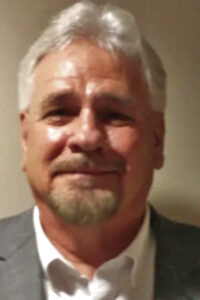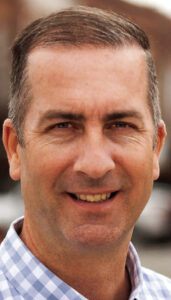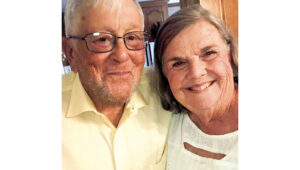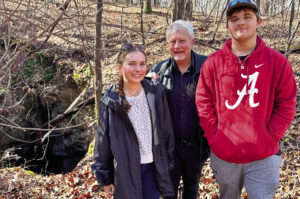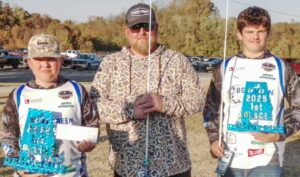Investing in science delivers hope for our children’s future
As a scientist and a father, few things are more painful to witness than a family searching desperately for answers about their child’s health and coming up empty. For many parents in north Alabama and across the country, this is more than a challenge. It’s a daily reality. My family and I have called Huntsville home for nearly 15 years. My wife Sara and I chose to build our lives here around promising professional opportunities in biomedical research. We came to appreciate that it’s also a great place to live and raise a family and have found ways to give back to this community. She’s spent years empowering people with knowledge about cancer risk through the Information is Power initiative, and I’ve focused my work on helping families find answers to puzzling and often heartbreaking medical problems.
At HudsonAlpha Institute for Biotechnology, I lead a team that uses cutting-edge genetic technologies to diagnose rare diseases in children.
We look directly at a child’s DNA to search for tiny changes that may explain their symptoms.
Traditional medical tests can miss these essential clues. Our genetic sequencing and analysis tools are designed to find the tiny, often subtle, genetic changes that traditional approaches cannot.
By carefully reading a child’s unique genetic code, we can often identify the precise cause of their condition. This isn’t just about giving a name to an illness; it’s about providing a definitive answer that can change a family’s life. For many, discovering this answer opens access to promising therapies, ends years of invasive and unnecessary testing, and lets them connect with others who understand exactly what they are going through. They can find a better path forward and people to walk with them.
These discoveries don’t just help the families that we work with directly. They improve how we diagnose similar cases, making care more effective and less costly for those families as well. They also provide knowledge that will be essential to developing new and better therapies for future generations.
None of this is possible without research. Genetic diagnosis requires advanced DNA testing technology, powerful computing, software innovations, and teams of expert scientists, data analysts, physicians, and genetic counselors.
It’s complex and costly and requires too much long-term investment and basic research for the private sector to handle alone. That’s why public investment in institutions like HudsonAlpha is crucial.
Investing in science isn’t just about technology or labs, it’s about people.
Families in our community are waiting for answers science can deliver.
Continued support for research means more children can be diagnosed earlier, more treatments can be developed, and more parents can stop living in the dark. In the end, it’s simple: when we invest in science, we invest in hope for a better future. Let’s keep moving forward for the kids and families who need it most. And if you believe science should continue working for our communities, you can make your voice heard. Take the Citizens for Science Pledge and stand up for research, discovery, and the everyday impact science has on people’s lives — Greg Cooper, PhD, is faculty investigator for HudsonAlpha Institute for Biotechnology in Huntsville.



